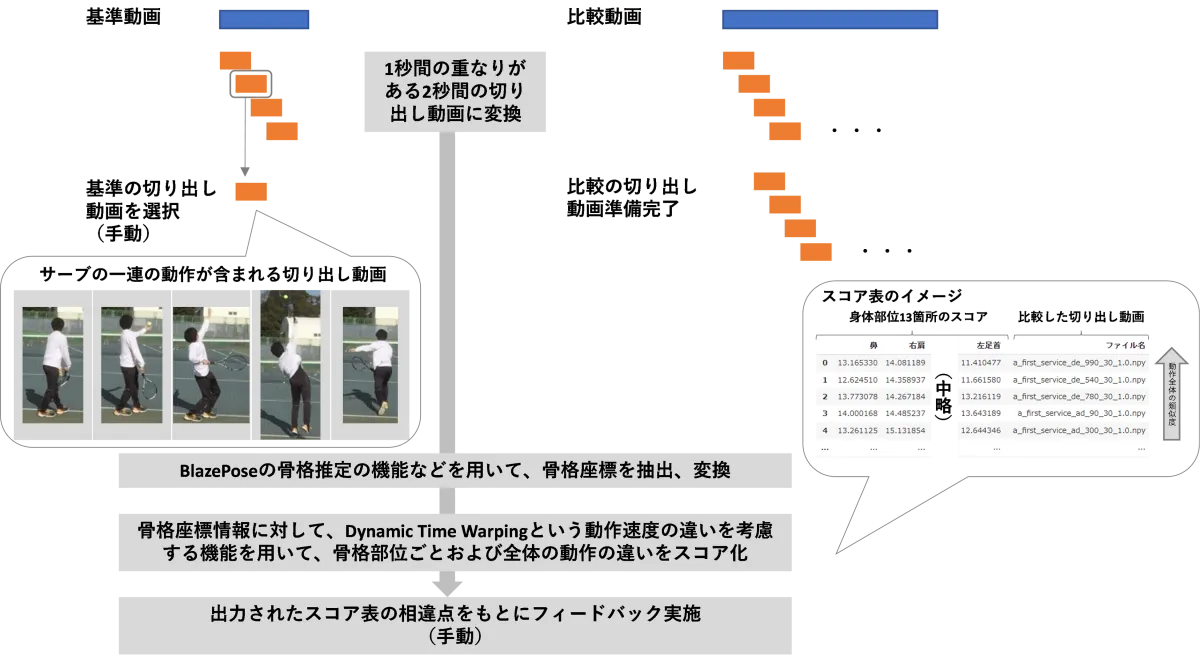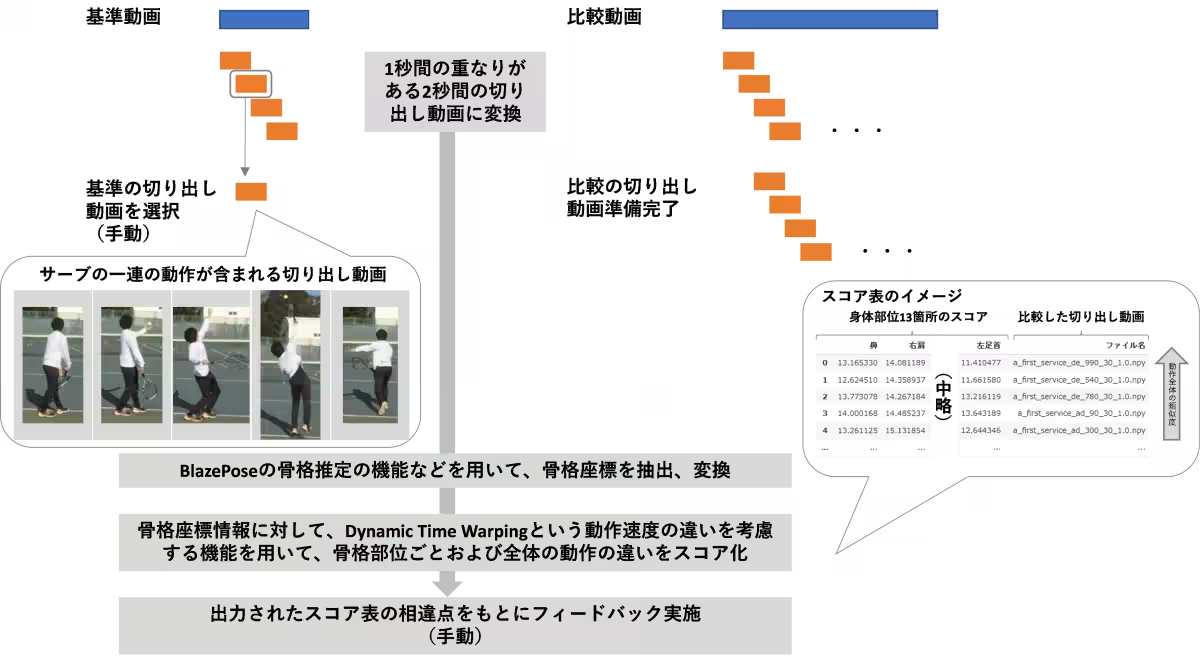

High-Precision Performance Analysis in Sports Using AI Technology
Unlocking AI's Potential in Sports Performance Analysis
In a groundbreaking development, researchers have successfully applied artificial intelligence (AI) technology to analyze sports performance, showcasing its ability to discern differences and similarities in athletic movements with remarkable precision. Drawing from recent advancements in object recognition and motion estimation, this analysis is set to transform how athletes and coaches approach skill enhancement.
The Role of AI in Sports Performance Analysis
Sports performance analysis has traditionally relied on subjective visual assessments made by athletes and coaches. This method can be influenced by personal experience and bias, lacking the objective rigor needed for accurate evaluation. Recognizing this gap, the research team embarked on a quest to leverage AI to enhance performance analysis, particularly focusing on tennis serves as a case study.
Recent technological advancements allow for depth estimation of human movements captured in video, a feature that has found limited application in sports coaching until now. By integrating AI into the analysis framework, the team aimed to extract actionable insights about athletes' performances, providing coaches with concrete data to guide training strategies.
Research Methodology and Findings
The study enlisted two experienced tennis players, focusing on four different serve conditions based on their position and style. By capturing and analyzing their service motions, the team utilized AI algorithms to assess the skeletal movements of the players. Two video recordings were prepared: the first serving as a benchmark representing ideal technique, while the second emphasized various attempts made by the participants.
The analysis revealed that the AI was able to extract similarities between movements with over 70% accuracy. Furthermore, the assessment of differing skeletal points aligned closely with evaluations made by certified coaches from the Japan Sports Association, confirming the tool's reliability in discerning subtle differences in performance.
This new analysis method not only highlights key areas where athletes can improve but also provides a solid foundation for developing personalized coaching strategies. By offering a clear picture of players' strengths and weaknesses, coaches can enhance their training programs, ultimately leading to improved performance outcomes.
Implications for the Future
Despite the promising results, the research team notes that there are still areas for growth. Some conditions yielded lower accuracy, indicating the need for further experimentation across various scenarios. The ambition is to refine this AI analysis method so that it can be adapted to other sports and physical education settings.
As the research continues, the integration of AI in performance analysis holds significant potential for revolutionizing sports coaching. By moving away from subjective evaluations towards a data-driven approach, athletes stand to benefit substantially as their training becomes more tailored to their specific needs.
Conclusion
In conclusion, this innovative performance analysis tool, combining AI technology with sports training, marks a new chapter in athletic coaching. As further studies build on these findings, the goal remains clear: to enhance the skills of athletes while providing coaches with unparalleled insights into their performance. The future looks bright for the intersection of sports and technology, ushering in an era of high-precision training and analysis that can empower the athletes of tomorrow.
References
- - Jindo, T., Satonaka, Y., Wakamoto, R., Iida, M., Suzuki, H., Shiraishi, H., Mitsuhashi, D. (2023). Detection of similarities and differences within the same shot movement using artificial intelligence-based performance analysis: An example of a tennis service. International Journal of Racket Sports Science. DOI: 10.30827/ijrss.33247
This study was supported by grants from Tsukuba University and Dentsu Research Institute, emphasizing the collaborative nature of research in advancing sports science.


Topics Sports)










【About Using Articles】
You can freely use the title and article content by linking to the page where the article is posted.
※ Images cannot be used.
【About Links】
Links are free to use.